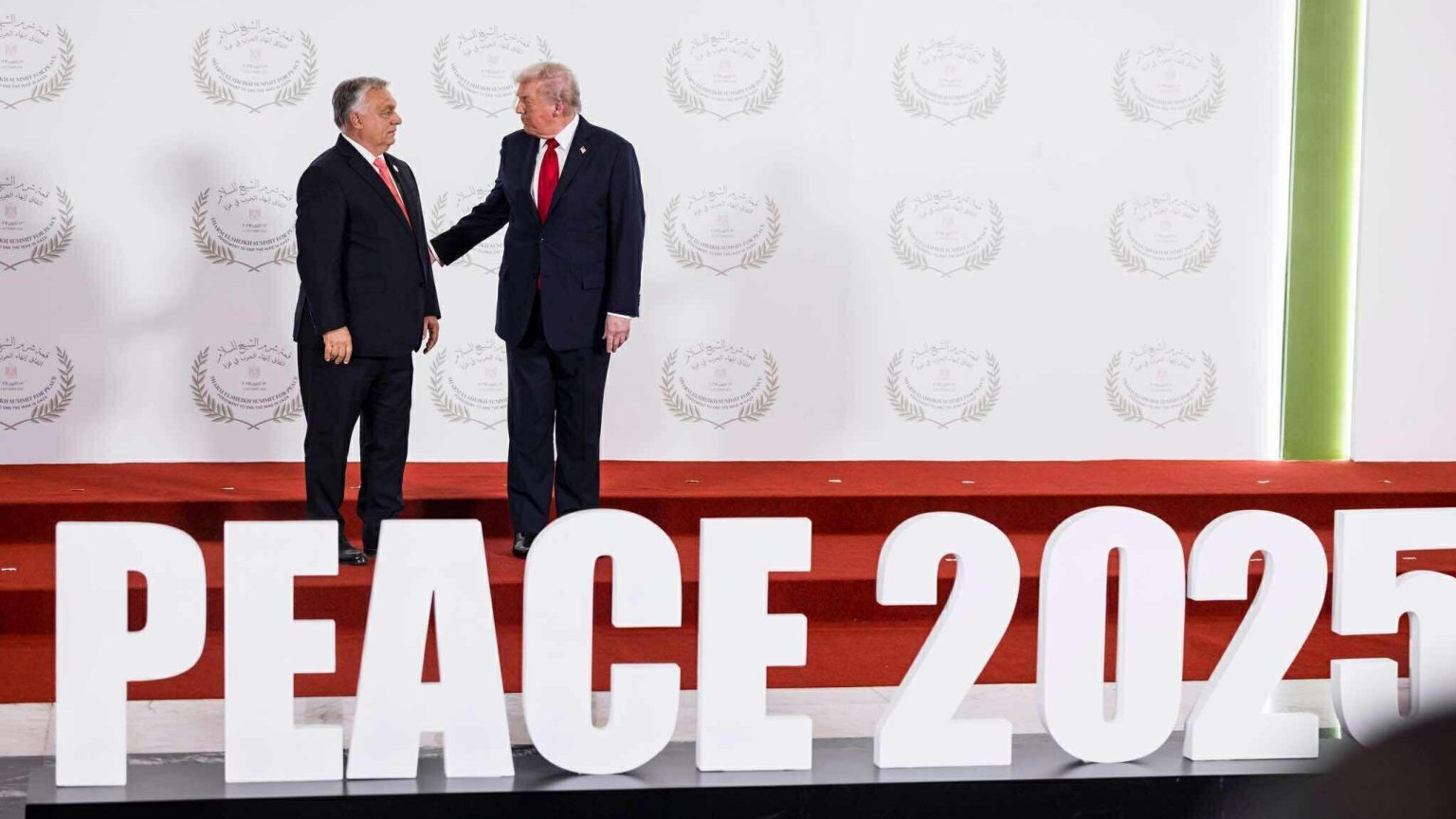Listen to the article
Hungarian Prime Minister Orbán to Meet Trump Amid Energy Sanctions Concerns
Hungarian Prime Minister Viktor Orbán is scheduled to meet with former U.S. President Donald Trump next week, according to an announcement by Hungarian Foreign Minister Péter Szijjártó on Monday. The meeting comes at a particularly delicate moment in international relations, as Hungary navigates the complexities of Russian energy dependence amid new U.S. sanctions.
The timing of the visit is significant, occurring just two weeks after Trump announced plans for a meeting with Russian President Vladimir Putin in Budapest to discuss the Ukraine war. Those plans were subsequently postponed, with Trump citing Russia’s unwillingness to agree to an immediate ceasefire along current battle lines as the reason for the delay.
Adding to the geopolitical tension, the U.S. Treasury Department recently imposed sanctions on two major Russian oil companies, Rosneft and Lukoil. This move has particular implications for Hungary, which remains one of the European Union’s largest importers of Russian oil, with Lukoil serving as a key supplier to the Hungarian market.
According to Szijjártó, the upcoming talks between Orbán and Trump will address both the potential peace summit and the newly announced sanctions, among other pressing issues.
During a visit to the Vatican on Monday, Orbán told Italian newspaper La Repubblica that he would meet Trump “to resolve the issue of oil sanctions.” The Hungarian leader emphasized his country’s energy vulnerability, stating that without Russian energy supplies, Hungarian prices would “skyrocket.”
“What interests me most is how we can build a functional system for the Hungarian economy, as Hungary heavily depends on Russian oil and gas,” Orbán explained. “Without them, prices would skyrocket, and serious supply shortages could emerge.”
The comments quickly generated controversy when several Western media outlets reported Orbán had directly criticized Trump’s sanctions decision. Headlines emerged suggesting Orbán had called Trump’s move “a mistake,” an interpretation that Hungarian officials swiftly contested.
Balázs Orbán, the prime minister’s political director, released the full recorded exchange to provide context, demonstrating that the prime minister had not explicitly characterized Trump’s decision as mistaken. According to the recording, Orbán had simply outlined the potential economic consequences for Hungary without making direct judgments about U.S. policy decisions.
La Repubblica’s presentation of the exchange appears to have substituted the newspaper’s interpretation for the prime minister’s actual words, attributing to Orbán statements suggesting he would seek to have the sanctions withdrawn—claims not supported by the recorded conversation.
The meeting highlights Hungary’s delicate balancing act in European politics. Under Orbán’s leadership, the country has maintained closer ties with Russia than most EU members, particularly regarding energy policy. Hungary secured exemptions from previous EU sanctions on Russian oil transported by pipeline, citing its landlocked geography and heavy dependence on Russian energy infrastructure.
Energy security remains a critical issue for Hungary, which receives approximately 65% of its oil imports and 80% of its natural gas from Russia. The country has consistently argued that alternative supply routes would require significant infrastructure investments and result in substantially higher energy prices for Hungarian consumers and businesses.
Balázs Orbán clarified the purpose of next week’s Washington visit, stating: “Viktor Orbán will represent Hungary’s continued commitment to efforts aimed at bringing the war to an end as soon as possible. We look forward to the talks with Donald Trump and support every joint initiative with the United States that serves the cause of peace.”
The meeting represents another chapter in the evolving relationship between Orbán and Trump, who have maintained cordial relations despite Hungary’s sometimes contentious standing within the EU and NATO. Both leaders have expressed mutual admiration in the past, with similar positions on immigration, national sovereignty, and skepticism toward certain international institutions.
Verify This Yourself
Use these professional tools to fact-check and investigate claims independently
Reverse Image Search
Check if this image has been used elsewhere or in different contexts
Ask Our AI About This Claim
Get instant answers with web-powered AI analysis
Related Fact-Checks
See what other fact-checkers have said about similar claims
Want More Verification Tools?
Access our full suite of professional disinformation monitoring and investigation tools




8 Comments
The timing of this visit is quite significant, coming shortly after the postponement of the planned Trump-Putin meeting in Budapest. Clearly, energy and sanctions issues are at the heart of the discussions.
I’m curious to hear Orbán’s perspective on the impacts of the new U.S. sanctions on Russian oil companies like Lukoil, which are major suppliers to Hungary.
This meeting between Orbán and Trump will be closely watched, given the complex energy dynamics involved. Hungary’s reliance on Russian oil imports adds an interesting wrinkle to the geopolitical tensions surrounding the Ukraine war and sanctions.
It will be intriguing to see how Orbán navigates this delicate balance between Hungary’s energy needs and the wider sanctions regime against Russia.
The meeting between Orbán and Trump highlights the delicate balance that countries like Hungary must strike between their energy needs and the broader global response to Russia’s actions in Ukraine. Navigating this will require deft diplomacy.
I wonder if Orbán will push for any exemptions or special considerations for Hungary given its reliance on Russian oil imports. That could be a contentious point of discussion.
This visit underscores the ongoing tensions between national interests and international sanctions regimes. Hungary’s close ties to Russia on energy issues put it at odds with the West’s punitive measures. It will be fascinating to see how this plays out.
This is a complex geopolitical situation with a lot of moving parts. Hungary’s energy dependence on Russia puts it in a tricky position as the West ratchets up sanctions. It will be interesting to see how Orbán maneuvers through these challenges.